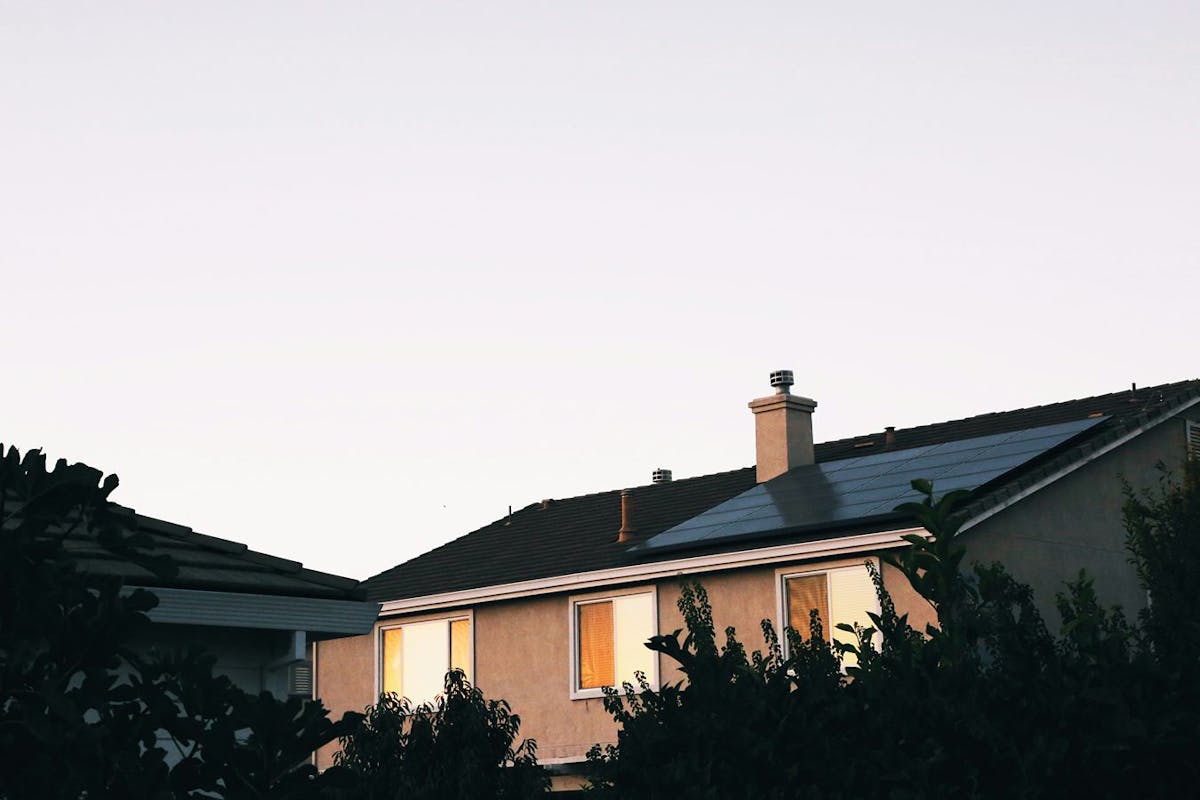Solar Panels and Homeowners Insurance Guide
Last edited
Author
Andrew Blok
Electrification and Solar Writer and Editor
Editor
Ryan Barnett
SVP, Policy & New Market Development

When you buy home solar panels, you want to protect your investment, just like you would a home, a car, or any other major purchase.
Solar panels can pay for themselves through energy bill savings in many places, and the return on investment can be high. Insurance — whether through your homeowners policy or supplemental coverage — can cover events and accidents a solar warranty won't.
Always talk to an insurance agent about the specifics of your situation. Here are the basics.
See how much you can save by going solar with Palmetto
Does Homeowners Insurance Cover Solar Panels?
Major insurance policies for homeowners will cover solar panels because the solar panels are considered a permanent attachment to your home. In many cases, you won’t need an additional add-on or “rider” that would impact your plan or premiums.
However, you should discuss several major questions with your insurance provider to make sure your solar panels are covered as much as they need to be.
Do you cover any accidents during the installation process?
Some insurance companies will cover the panels once they are installed, but not panels that are broken during installation. Check if your insurance covers any roof damages caused by the solar power installation.
Do I need additional insurance to cover the solar panels?
Depending on the type of solar panel system being installed, you may need supplemental insurance. The location of your solar panels plays a huge factor in how they are insured, as most dwelling coverage just includes your main house.
Do I need to raise my coverage limit to account for natural disasters?
Your coverage limit is the maximum amount your insurance company will pay in the event of a claim and should be high enough to cover your panel replacement as well. That could mean purchasing more coverage.
What happens if I’m leasing the solar panels?
If you lease solar panels, the leasing company owns them and handles any repairs and maintenance.
See how much you can save by going solar with Palmetto
Are maintenance and service covered under my homeowners insurance?
Generally, maintenance and service are not covered under a manufacturer’s solar warranty or your homeowners insurance.
Homeowners interested in additional maintenance and service can enroll in a program like Palmetto Protect, which offers quick access to energy monitoring, dedicated customer support, exclusive discounts, and best-in-class maintenance services.
Weather and natural disaster coverage
Solar panels are designed to withstand wind and rain but can occasionally be damaged by an extreme weather event. Where you live is definitely a consideration when selecting the level of homeowners insurance you need and what is a covered peril.
For instance, if you live in Arizona, you probably aren't worried about hail damaging your solar panels. However, if you live in the Midwest, you will want to ensure your insurance policy covers wind damage because of the greater chance of tornados. Additionally, if you live in an area with a higher risk of natural disasters such as earthquakes, you should talk to your insurance provider about the coverage you need for your solar panels.
If you have your solar panel system producing electricity on a detached garage, shed, or barn, those buildings may not be considered part of your home. Insurance companies typically only cover a small percentage of additional buildings on your property. If you installed solar panels on other parts of your property, they may not be fully covered.
Supplemental policy
Your homeowners insurance policy is designed to cover you if something terrible happens, such as a tornado or fire. If something like that does happen, you should receive enough money to rebuild your house. However, while your homeowners insurance may "cover" your solar panels against damage, you may not receive enough money to rebuild your home and then install a completely new solar panel system.
This is where a supplemental policy comes into play.
These supplemental policies provide additional protection to any belongings that fall outside the coverage of your basic homeowners insurance.
A supplemental policy for solar panels could cover some or all of the following.
- Installation
- Separate buildings with solar panels on them
- Increased infrastructure related to your solar power system (including ground-mounts)
- A solar battery storage system
One alternative to getting a supplemental policy for your rooftop solar panels is to get a more comprehensive plan. This could be easier because everything would be covered under a single policy rather than spread out over several. A conversation with your insurance provider can help you build such a plan but remember: If it covers more, it will usually cost more.
See what solar can do for you:
Will Homeowners Insurance Cover Solar Panels If They're Leased?
If you lease solar panels, your homeowners insurance generally isn't responsible for covering them. Instead, the company you lease your solar panels from should hold an insurance policy for them, as they are responsible for keeping up with the panels and repairing or replacing them as needed.
Still, it’s important to understand the warranty and insurance coverage offered by your solar company so you can determine if you need additional insurance coverage. For instance, if something happened to the solar panels and they damaged your roof, you need to know who is responsible for covering the repair of the roof.
Will Solar Panel Insurance Increase My Homeowners Insurance Premiums?
Insurance plans can vary, so talk to your insurance provider. But, adding solar panels can increase your homeowners insurance premiums.
Adding solar panels often raises the value of your home. If something happened to your home, you would need more money to rebuild or replace it. Thus, the amount you pay toward your insurance premium will typically increase.
If you need to take out supplemental coverage, you’ll have a premium for that.
Saving Money With Solar Panels
Solar panels can be a long-term, money-saving investment, even if your insurance premiums go up. It’s important to communicate with your insurance company before and after you go solar to make sure you have appropriate coverage for your home and your solar system.
To learn more about going solar contact a Palmetto solar advisor or estimate your savings for free.
See what solar can do for you:
Frequently Asked Questions
Does homeowners insurance cover solar panels?
You may find your new solar panels are covered by your existing homeowners insurance. Still, you should confirm directly with your insurance company whether your new system is covered.
Do I need to tell my homeowners insurance about solar panels?
You’ll want to tell your homeowners insurance about your solar panels so you can confirm they’re covered by your existing coverage.
Will my homeowners insurance increase when I add solar panels?
Your premium could go up when you add solar panels to your home. Knowing if it will and by how much is an important factor in understanding how much you could save with solar panels.
What If I want better homeowners insurance for my solar panels?
It can pay to shop around. You could find the same coverage for cheaper when you check with other insurance companies.
Disclaimer: This content is for educational purposes only. Palmetto does not provide tax, legal, or accounting advice. Please consult your own tax, legal, and accounting advisors.


